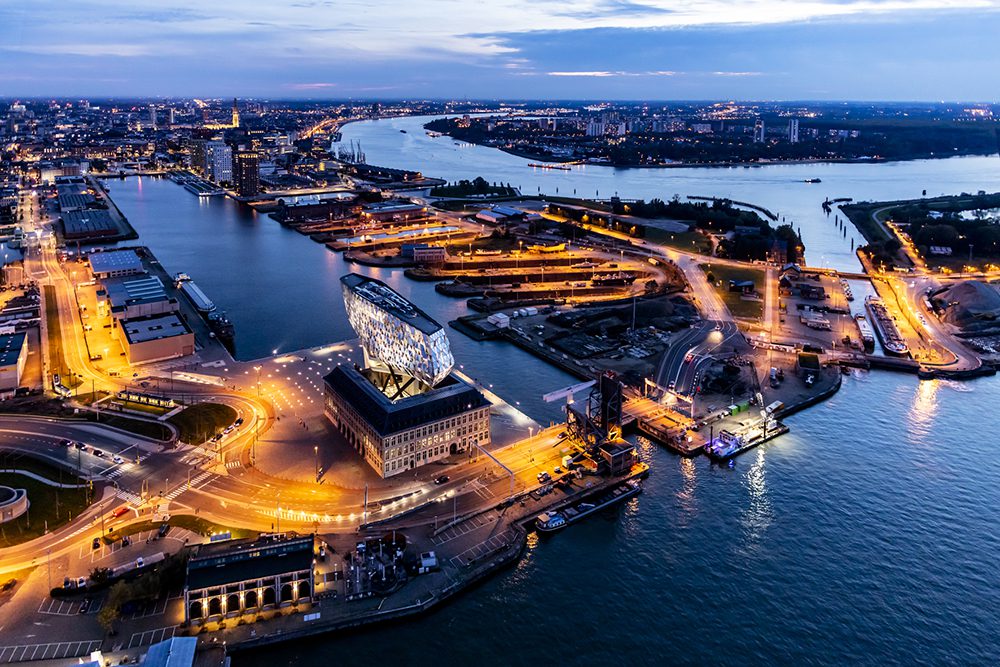At the roundtable discussions that took place as part of the StartupCity Summit, participants explored the trends influencing the creation of startup ecosystems and shared ideas for creating a successful and productive future for new tech companies in their cities.
At the discussions, participants explored trends influencing the creation of startup ecosystems and shared ideas for creating a successful future for tech companies.
Looking toward the future
On 10 May, city representatives from across the globe gathered at The Next Web (TNW) conference for the Startup City Summit in Amsterdam. They engaged in a series of roundtable discussions focused on the newest trends shaping the creation of startup ecosystemsand exchanged ideas about taking things to the next level.


Roundtable 1: Activating the ecosystem on female entrepreneurship & inclusivity
Though the number of women founding startups is increasing, the fight for equality is far from over. This roundtable empowering women to become entrepreneurs and start their own companies proposed a number of ideas. One of them was that cities should raise awareness, provide ongoing support (such as improving childcare and establishing inclusive co-working spaces) and create structural change. Strong female role models must be given a voice and comprehensive strategies are needed to help women entrepreneurs – one-off events are not sufficient for changing the status quo. Platforms where women can connect with one another, as well as spaces where men and women can interact on an equal footing and at a professional level, are essential.
Roundtable 2: Creating a clear ecosystem identity & branding on a global scale
The major point discussed here was the importance of specialisation: adopting a clear specialisation is a better way of promoting a startup ecosystem than trying to excel at everything. An ecosystem should be associated with a few key areas or fields. Governments need to determine which aspects of their ecosystem stand out from the pack and promote these on a global scale. Of course, this doesn’t mean that companies that fall outside of a city’s core focus areas should be ignored.
Roundtables 3 & 8: Sub-sectors and vertically focused programmes, policies and partnerships
These roundtables discussed the significance of supporting the creation of policies and programmes that help an ecosystem develop a clear specialisation. However, there’s no single way to accomplish this: every ecosystem’s specific characteristics should be taken into account. Governments can help by acting as customers, providing steady cash flow and regular input to young companies. Encouraging mentorship and connecting newcomers with experts ensures access to expertise and experience, potentially preventing mistakes, and using existing initiatives to support ecosystem subsectors increases visibility and access to valuable resources.
Roundtables 4 & 6: International talent attraction and retention
These two roundtable discussions focused on attracting and retaining international talent – a challenge for startup ecosystems everywhere. Supporting public and private educational offerings often helps, as does encouraging training programmes in different ecosystems to establish local branches. Providing relocation packages to people who have joined larger ecosystems, thus bringing them back at a later point in their careers, can draw business to a city as well. And an ecosystem’s USPs must be heavily promoted to help it stand out from the competition. These points extend beyond economic factors and should include aspects such as quality of life and cultural offerings.
Roundtables 5 & 7: Helping startups and scale-ups go global + regional and global networks
Governments should prioritise helping their startups and scale-ups expand globally to ensure their long-term success. Events and delegation trips can expose young companies to different industries and regions without requiring that they invest in independent market evaluation activities. Creating a tech ambassador role to promote an ecosystem, publicise events and cultivate relationships is also beneficial.



